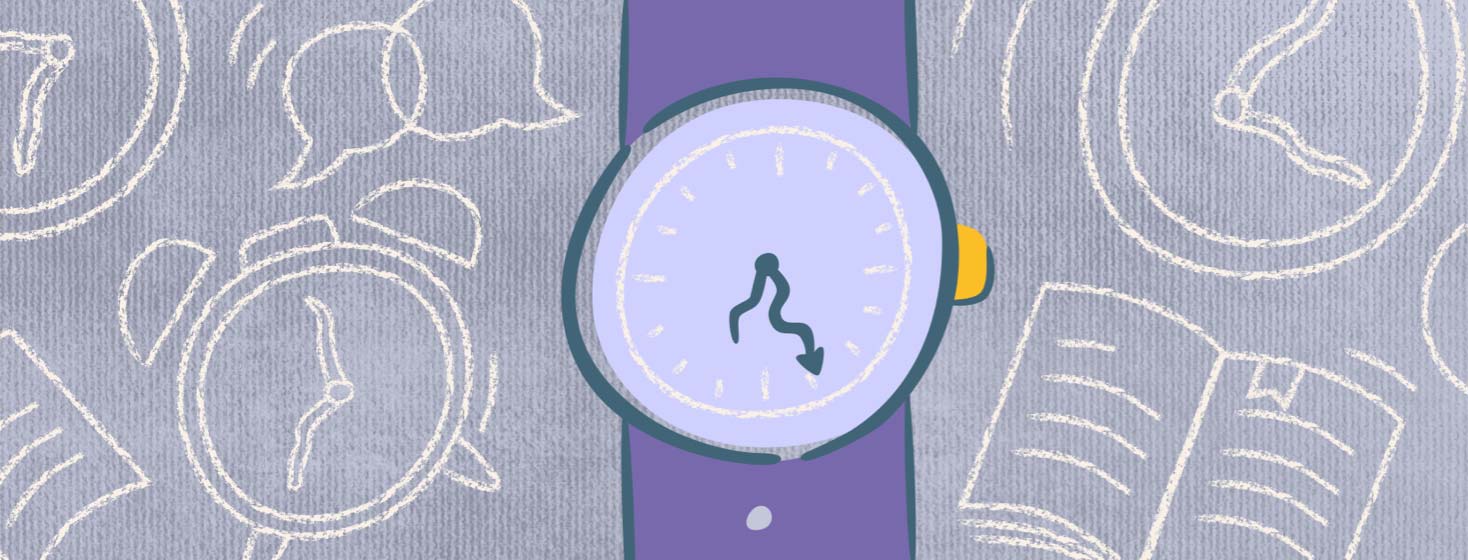Ask the Advocates: Impatience
We asked our COPD advocates for their thoughts on impatience and here's what they had to say.
Impatience while living with COPD
Janet
Patience is a virtue, so they say. I try, but am finding out that impatience gets in the way. I am usually impatient with myself. I try so hard to get things such as housework done. After an hour or two, I am done for the next day or two. Maybe even three. When I decide on a task, I’m heartbroken when I struggle to do the task and have no success.
This is something that I am working hard at, being patient with myself. To accept that there are challenges that we all have to face. My husband reminds me “pace yourself, you always take off in a charge”. I’m learning slowly. I guess that some extra patience and taking time to breathe can be a good thing. In a way, I think it takes less stress, energy, and even time to be patient than it does to be impatient.
Carol
Normally I am a low key, laid back type of person. I move throughout my day on an even keel. Then there are the days when - BAM! Everything I do and everyone I talk to is trying my patience. I’ve tripped over my oxygen tubing, yet again. My husband asked me to repeat what I just said and I barely had enough oxygen the first time to say it. I have a lot to do, and my body won’t let me move fast enough to get it all done.
When I start to feel this way, I have learned to stop and ask myself why? I went through a brief period of being very impatient with my husband. Discussing it, I came to the realization I resented the freedom he still had and I lost. When I am impatient with the daily tasks and my lungs for not keeping up, it is because I put too much on myself. Prioritizing what is important for the day helps with that.
It can be difficult to find patience when everything we do causes shortness of breath. Our lifestyle changed, but it hasn’t changed for those around us. I had to slow down, including mentally. I also discovered those I love will slow down for me. I only have to ask.
Debz
I can definitely be impatient. I want everything done yesterday. I get impatient as I'm unable to do what I used to do and have to rely on others to do what I cannot. Whilst they do what I can't do, I get impatient waiting. It's frustrating that I can't do things and although I know I can't do it, I will still give it a go hoping someone will take over as I get impatient hanging around waiting.
Years ago I used to do these routine things in a few minutes. I'm ready to go out about an hour before it's time to leave and I impatiently wait for the hubby to get ready. I have a routine and if it is broken I am impatient for the rest of the day. I'm sure many people will feel this way as we took many things from old old lives for granted. Then it was taken from us gradually and at times we didn't notice until we went to do it and couldn't. So being impatient is part of our life with COPD.
Barbara
Impatience is one of my least endearing qualities. I am impatient with myself and that is obvious to everyone. Impatience grows when I can’t do things that I used to do. When my goal is to make a cup of tea or have a shower and I can’t do it by myself, I get impatient. And, although I certainly appreciate people trying to help me, I find they take too long or don’t get it done the way I would like it done.
When I catch myself doing a slow boil over something I have no control over and I start muttering under my breath, I draw on my mindfulness lessons. Mindfulness helps me to stay in the moment. To accept this moment as it is, without trying to change it. My intention is to learn patience. It helps me to control my thoughts and keep the situation in perspective. Meditation with deep abdominal breathing also helps to calm my thoughts and helps me to reset my brain.
Kevin
I know this is a personality trait I possess. I see it in my encounters with friends, family, and perfect strangers. I especially find it in me in situations of commerce – that is – SHOPPING! Whether online “chatting” with a company representative or on the phone with “an associate,” I find myself less inclined to put up with what I feel is poor training or just out-and-out incompetence. It’s difficult to say who’s at fault in these matters.
Most customer service representatives are trained according to a particular “practice” or set of guidelines that seek to cover any possible conversation or situation (there are a million labels). They have very little flexibility in what to say or how to say it. I know more about this than other matters because I spent 10 years in a customer service management position.
When you’re on the phone and you hear the warning “This call may be monitored,” it’s very true. I was one of the guys who monitored. But luckily, it’s only in this kind of encounter that my impatience roars up. In-person or in casual conversation, or in almost any other kind of situation, I’m a veritable puppy – a pushover (at least that’s what I tell myself).
I’ve decided, never again, to take a “pity-pill” and go to a “pity party.” And the only “withdraw” I permit myself is at an ATM or the bank.

Join the conversation